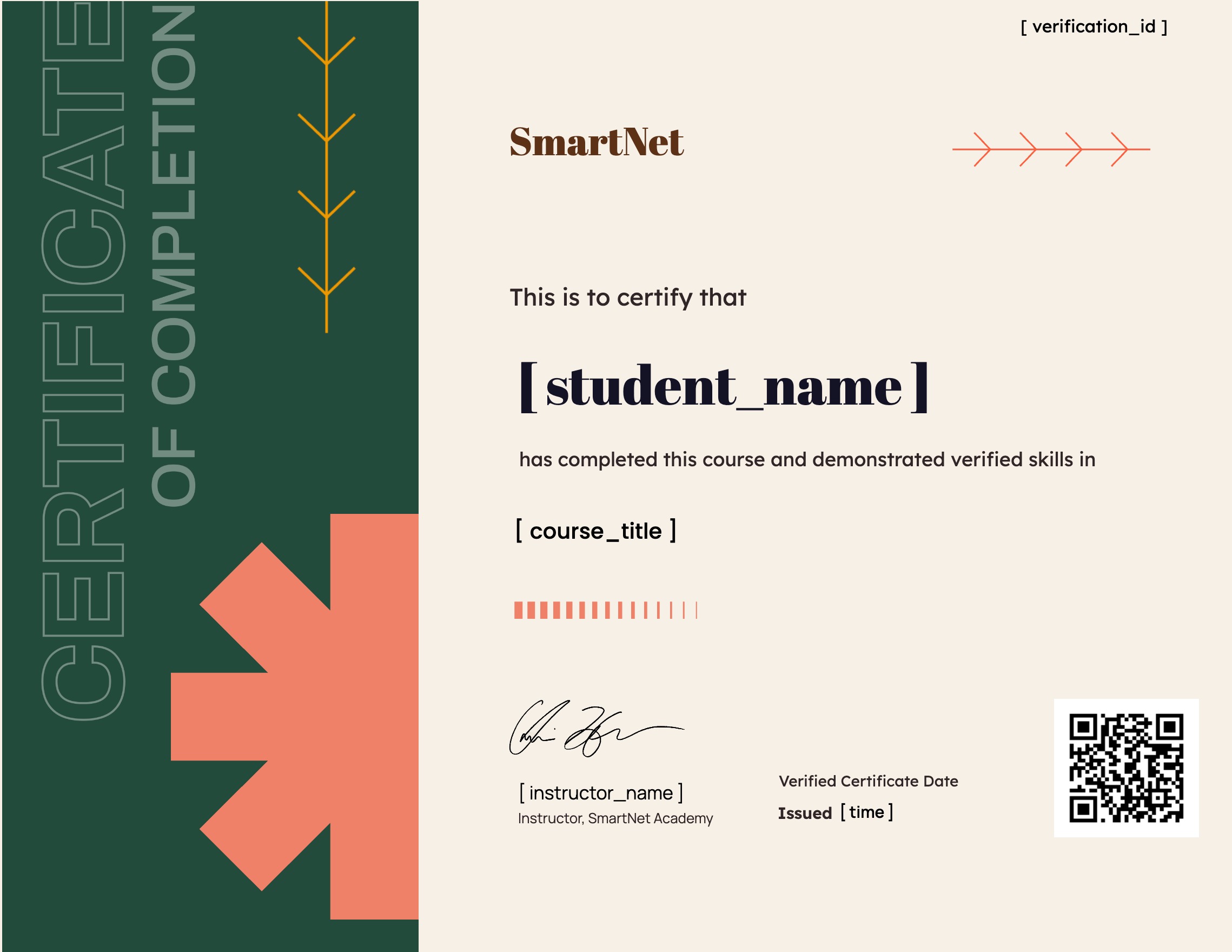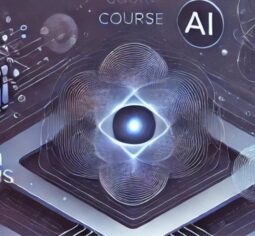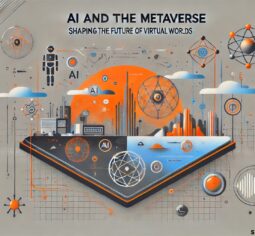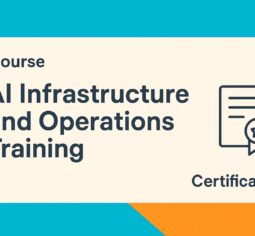The AI for Smart Cities course investigates how artificial intelligence (AI) is revolutionizing urban development through improvements in city planning, infrastructure systems, and sustainability practices. AI functions as a critical force in transforming urban design and management as cities develop into interconnected data-centric systems. SmartNet Academy provides this course so students can learn about smart city technologies and discover how AI will shape urban living in the future.
What is a Smart City and How Does AI Fit In?
A smart city represents an urban area that utilizes artificial intelligence along with data and advanced technologies to enhance residents’ quality of life while optimizing resource use and improving urban experiences. The growth and increasing interconnectedness of cities worldwide depends heavily on AI to define their future directions. This course will provide an introduction to smart cities and explore how AI technologies drive urban development, improve sustainability, and enhance efficiency.
Key Concepts You Will Explore:
-
Defining Features of Smart Cities: Understand what makes a city “smart” and why it’s important for urban development.
-
AI’s Role in Smart Cities: Learn how AI technologies such as machine learning, computer vision, and the Internet of Things (IoT) power smart city innovations.
-
Enhancing Sustainability: Discover how AI helps cities become more sustainable, reduce waste, and improve energy efficiency.
-
Optimizing Resources: Learn how AI optimizes the use of urban resources such as water, energy, and transportation systems.
What You Will Learn:
-
The Core Components of Smart Cities: Explore essential components such as smart grids, intelligent transportation systems, and smart buildings.
-
AI’s Role in Smart City Solutions: Understand how AI-driven solutions are used to improve traffic management, public safety, and city infrastructure.
-
Impact on Urban Sustainability: Learn how AI helps cities minimize environmental impact, manage waste, and reduce energy consumption.
-
The Future of Smart Cities: Get insights into the future trends in smart cities, from autonomous vehicles to AI-enhanced governance.
By the end of this section, you will have a foundational understanding of what makes a city “smart,” the role of AI in transforming urban landscapes, and the potential for AI-driven innovations to improve the quality of life in cities worldwide.
Exploring AI Technologies in Smart Cities
The success of smart cities hinges on the integration of advanced AI technologies that can analyze, automate, and optimize various urban functions. From improving energy management to enhancing transportation systems and public safety, AI tools are transforming urban environments into more efficient, sustainable, and livable spaces. In this course, we will explore key AI technologies, including machine learning, computer vision, and the Internet of Things (IoT), and how these technologies are applied to make cities smarter and more responsive to the needs of residents.
What You Will Learn in This Section:
-
Machine Learning for Smart Cities: Machine learning (ML) models help predict patterns and optimize urban systems. In this course, you will learn how ML algorithms are applied in smart cities to:
-
Predict traffic patterns and optimize traffic flow to reduce congestion.
-
Optimize energy usage by predicting demand and adjusting supply dynamically in smart grids.
-
Improve the efficiency of public transport systems by predicting peak hours and adjusting schedules accordingly.
You will also discover how predictive models can prevent congestion, enhance mobility, and reduce waste in smart cities.
-
Computer Vision for Public Safety: Computer vision uses AI to interpret and understand visual data from the environment. In smart cities, computer vision plays a critical role in:
-
Monitoring public spaces and enhancing security by detecting anomalies and identifying potential safety risks in real-time.
-
Improving traffic management by analyzing visual data from cameras, detecting traffic violations, and optimizing traffic light patterns.
-
Helping law enforcement by automating surveillance and crime detection to create safer urban environments.
This section will teach you how computer vision technologies contribute to public safety, improve efficiency, and monitor infrastructure health in smart cities.
-
Internet of Things (IoT) in Smart Cities: The IoT is a network of interconnected devices that collect and exchange data. When combined with AI, IoT transforms urban environments by creating smart, responsive systems. In this module, you will:
-
Learn how IoT-enabled devices (such as smart sensors, meters, and traffic lights) gather data for real-time monitoring.
-
Understand how AI analyzes this data to make automated decisions that optimize city operations, such as regulating water supply, energy consumption, and waste management.
-
Explore how smart infrastructure (such as smart buildings and connected public services) enhances the quality of urban life by responding to changing conditions and user needs.
By the end of this section, you will have a practical understanding of how machine learning, computer vision, and the IoT are integral to developing and maintaining smart city solutions. These technologies are essential for enhancing urban sustainability, improving public safety, and creating smarter cities that can adapt to the evolving needs of their residents.
Real-World Case Studies in Smart Cities
In this section, we will dive into real-world case studies from cities around the globe to illustrate how AI-driven solutions are transforming urban environments. By studying the successes and challenges faced by leading smart cities like Singapore, Barcelona, and San Francisco, you will gain a clear understanding of how AI is being integrated into urban systems to improve efficiency, sustainability, and the overall quality of life for residents. These case studies will showcase the practical application of AI technologies across various domains, from transportation to energy management, public safety, and citizen engagement.
What You Will Learn in This Section:
-
AI Applications in Leading Smart Cities: You will explore the AI-powered solutions implemented in cities like:
-
Singapore: Learn how Singapore has become a global leader in AI-powered smart city development, particularly in the areas of traffic management, smart housing, and public health monitoring. You will see how the city uses AI to manage real-time traffic flow, reduce congestion, and promote sustainable transportation options.
-
Barcelona: Discover how Barcelona has leveraged IoT and AI technologies to improve waste management, energy efficiency, and urban planning. Barcelona’s AI-driven smart lighting system and environmental sensors are examples of how technology can improve the sustainability of urban environments.
-
San Francisco: Explore how San Francisco has implemented AI-driven solutions for public safety and urban mobility. This includes automated traffic management, crime prediction systems, and smart public transport initiatives.
-
AI Impact on City Services and Efficiency: By examining the case studies, you will learn how AI has successfully been used to:
-
Improve city services, such as intelligent transportation systems that optimize traffic flow and reduce congestion.
-
Reduce operational costs in areas like energy consumption, waste management, and public safety by automating processes and optimizing resource allocation.
-
Enhance quality of life for residents by offering services that are more responsive to their needs, from predictive maintenance of infrastructure to real-time updates on city conditions.
-
Challenges and Lessons Learned: While these cities have achieved significant success, they have also faced hurdles in implementing AI solutions. You will gain insights into:
-
The challenges of data integration across multiple systems and departments.
-
The complexities of ensuring data privacy and security in AI-driven solutions.
-
How cities have overcome these challenges, fostering public-private partnerships and leveraging government support to implement AI technologies.
By the end of this section, you will have a deep understanding of how AI is transforming cities globally and the practical lessons that can be applied to other urban environments. These case studies provide a real-world context for AI technologies, demonstrating the impact on city services, sustainability, and overall urban living.
Designing AI-Driven Urban Solutions
In this section, we will focus on the process of conceptualizing and implementing AI-driven solutions to address common urban challenges. AI technologies are transforming cities by providing scalable, sustainable, and efficient solutions to enhance urban living. Whether it’s improving resource allocation, optimizing transportation, or enhancing public service delivery, AI is paving the way for more intelligent urban systems. As you progress through this section, you will gain hands-on experience in designing solutions that address issues such as traffic congestion, waste management, and energy consumption using the power of artificial intelligence.
What You Will Learn in This Section:
-
Designing AI-Powered Urban Solutions: You will learn how to create custom AI-driven solutions tailored to the specific needs of urban environments. The course will guide you through the steps of conceptualizing solutions that:
-
Address the unique challenges faced by cities, such as overcrowded transportation systems, inefficient energy usage, and waste management.
-
Integrate AI technologies such as machine learning, natural language processing (NLP), and IoT to automate and optimize urban systems.
-
Design solutions that are not only innovative but also scalable and sustainable to meet the long-term needs of growing cities.
-
AI in Sustainability and Energy Optimization: A significant focus of this section is on sustainability and energy optimization. You will discover how AI can:
-
Help cities reduce energy consumption by optimizing energy usage in buildings, street lighting, and public transportation systems.
-
Apply predictive analytics to forecast energy demand, enabling cities to better manage their resources and reduce environmental impact.
-
Design smart grid systems that use AI to balance and distribute energy efficiently, promoting clean energy usage and reducing waste.
-
AI Solutions for Urban Mobility and Traffic Management: Traffic congestion is a critical issue in urban areas, and AI can play a key role in optimizing transportation systems. In this module, you will:
-
Learn to apply AI to optimize traffic flow, reduce congestion, and improve public transportation efficiency.
-
Design autonomous vehicle systems that use AI to enhance mobility and reduce traffic jams.
-
Utilize machine learning to analyze traffic patterns, helping city planners make data-driven decisions to improve public transit systems and reduce commute times.
-
AI in Waste Management and Resource Allocation: Smart cities are also focused on resource optimization and waste management. You will:
-
Learn how to design AI-powered waste management systems that automatically detect full trash bins, predict waste generation patterns, and optimize collection routes.
-
Apply AI technologies to improve water management, optimize the distribution of clean water, and detect leakages in water supply networks.
-
Implement automated systems that ensure efficient resource allocation, such as smart meters for utilities and systems that optimize the use of public resources like parks, roads, and community spaces.
Skills You Will Gain:
-
AI Application Design: Learn how to develop AI-driven solutions that are specifically tailored to urban environments, addressing complex challenges with simple, effective solutions.
-
Evaluation and Implementation: Understand how to propose, evaluate, and implement AI solutions to real-world problems, ensuring that your designs are not only functional but also sustainable in the long term.
-
Urban Planning Integration: Develop skills to integrate AI technologies with traditional urban planning methods, ensuring that your solutions enhance the overall infrastructure and quality of life for residents.
By the end of this section, you will have the skills needed to design innovative, AI-powered solutions for urban challenges. Whether it’s optimizing traffic flow, managing waste, or improving energy efficiency, you will be prepared to tackle the challenges that cities face as they continue to grow and evolve into smarter, more efficient urban spaces.
The Ethical and Societal Implications of AI in Smart Cities
AI integration in urban environments brings a wealth of opportunities but also raises significant ethical and societal concerns. This section will explore the ethical considerations surrounding the deployment of AI in smart cities, including data privacy, surveillance, and the digital divide. You will learn about the importance of transparency, fairness, and accountability in AI systems used within urban spaces.
In this module, you will:
-
Understand the ethical challenges posed by the use of AI, particularly in areas like data privacy and security.
-
Explore the implications of AI-powered surveillance and the balance between safety and privacy.
-
Learn about the digital divide and how AI can either bridge or widen gaps in access to technology and services.
This course will equip you with the knowledge to navigate these challenges while implementing responsible AI solutions.
The Future of AI in Smart Cities
The course concludes by looking at the future of AI in smart cities. As AI technology continues to evolve, so too will its application in urban environments. You’ll learn about emerging AI trends and technologies that will continue to shape the future of cities. From the rise of autonomous vehicles to the integration of blockchain in city services, this section provides a forward-looking perspective on AI’s role in urban development.
In this section, you will:
-
Explore emerging AI trends in smart city development, such as autonomous transportation and AI-driven governance.
-
Understand how blockchain and 5G will complement AI in creating smarter and more connected cities.
-
Learn how AI will continue to evolve, creating new opportunities for smart city innovation.
By the end of the course, you will have a forward-thinking understanding of how AI will continue to shape urban life in the years to come.
Embrace the Future of Smart Cities with AI
As cities around the world face rapid growth and evolving challenges, the integration of artificial intelligence (AI) offers a transformative solution to improve urban life. This course, offered by SmartNet Academy, empowers you with the knowledge and practical skills necessary to design, implement, and manage AI-driven solutions that enhance urban efficiency, sustainability, and the quality of life for residents. Whether you’re a city planner, a technology enthusiast, or a professional aiming to revolutionize urban spaces, this course will prepare you to lead the charge in creating smarter cities.
AI is not just a tool; it is a game changer in the way we design, manage, and experience our cities. From enhancing public transportation systems to optimizing energy use and improving public safety, AI is reshaping how we approach urban development. As urbanization continues to accelerate, the need for smarter, more efficient, and sustainable cities is more pressing than ever. AI technologies like machine learning, computer vision, and the Internet of Things (IoT) are providing solutions that address these challenges and lay the foundation for smart cities that are more adaptable, resilient, and people-friendly.
By the end of this course, you will have a comprehensive understanding of how to:
-
Design AI-powered urban solutions tailored to the unique needs of cities, such as optimizing transportation, managing resources, and improving the sustainability of urban infrastructure.
-
Implement and manage AI-driven systems that improve the day-to-day functioning of cities, making them more responsive and efficient.
-
Understand the ethical and societal implications of deploying AI technologies in public spaces, ensuring that the benefits of smart cities are shared equally among residents.
This course equips you with a holistic perspective on the challenges and opportunities of building smart cities and intelligent urban systems. It enables you to be a key player in the future of urban planning and development. As cities continue to evolve, your ability to leverage AI for urban innovation will not only enhance the sustainability of urban environments but also improve the quality of life for millions of people.
Enroll today and take your first step toward becoming an AI-driven smart city leader. By understanding the power of AI and its potential applications in urban development, you can actively contribute to building smarter cities that will define the future of urban living. Don’t miss the chance to shape the cities of tomorrow—embrace the future with AI and become a part of the global movement toward smarter, more sustainable cities.






























